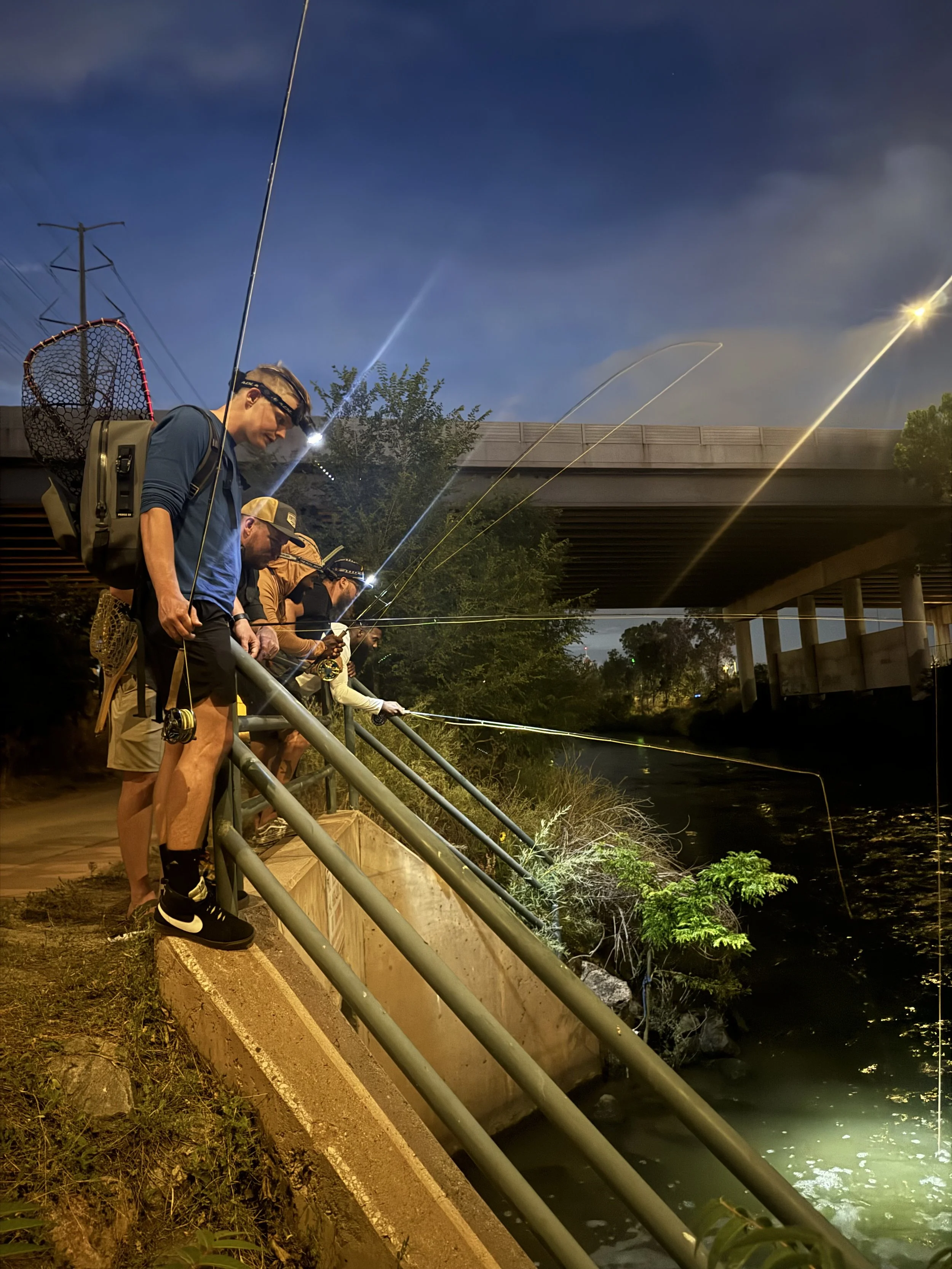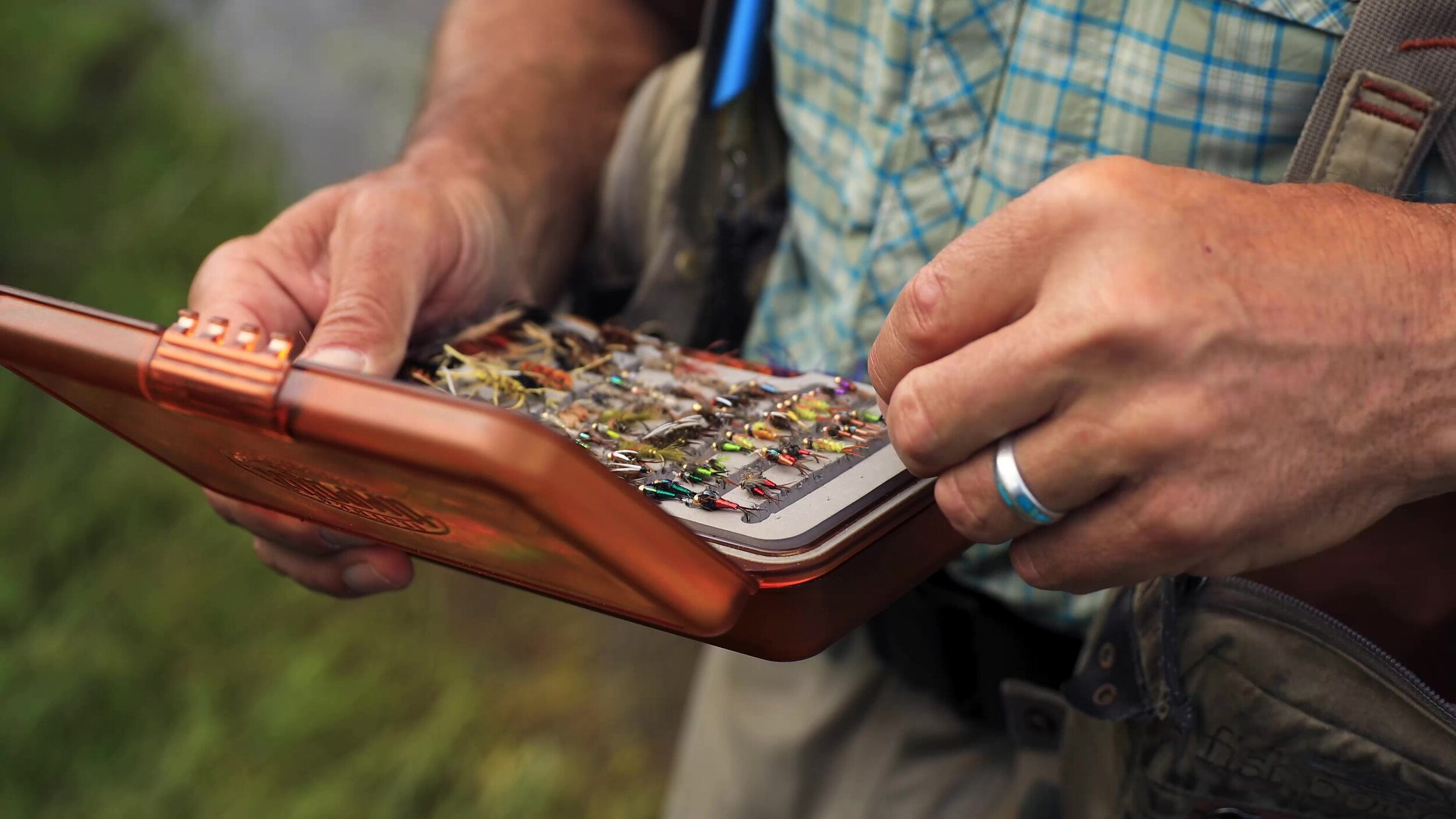BTF: At the time, the Buffalo Peaks Ranch Restoration Project was the largest restoration project CTU had ever done. How did you decide to take on such a large project?
Sinjin: Certainly, the bigger the project the greater the risk. But the board is pretty good about evaluating projects, both in terms of conservation value and financial risk. As I recall, our confidence was high because of the parties involved - the Colorado Division of Wildlife, City of Aurora, Park County, and a private landowner. And I wanted to take it on because it was ambitious. If I’m going to volunteer my time, pull in others like Rick to volunteer their time, then let’s make sure it’s for a good reason. Let’s work on the things that are the most impactful.
Rick: There’s that competitive spirit I was talking about. As a first-time volunteer, I really appreciated that I was working on something that made a tangible difference. Too often, volunteers are tasked with bringing food or producing a newsletter or washing cars. Don’t get me wrong, it all has to be done, but I really enjoyed being outdoors, busting my ass, working with others who felt the same way, on a section of river I could visit for years to come.
BTF: So that’s what prompted you to join the CTU board?
Rick: Not exactly. I think I could have worked on CTU projects without joining the board and been content. The late Charlie Meyers, whom I first met at Buffalo Peaks, inspired me to make a difference. But Sinjin gets most of the credit, or blame depending on who you ask. I still remember a night at Sinjin’s house with Tom Jones…
Sinjin: Tom was the National Leadership Council Rep at the time, and a board member that I viewed as a trusted mentor. Many think of these years as the “Sinjin and Rick” years, but Tom was the NLC Rep for both of us. He was really the voice of reason that kept us in line.
Rick: Most of the time. We probably should have asked him about that video we posted of a bulldozer in the river.
Sinjin: Yeah, he wouldn’t have approved.
Rick: We were sitting at Sinjin’s dining table. I think Tom was drinking whiskey and I was drinking scotch. I’m not sure what Sinjin had, a Moscow Mule?
Sinjin: Sounds about right.
Rick: We talked for hours about Sinjin’s upcoming term as President. It was generally about how Sinjin felt we could bring a different approach with a different energy. I remember leaving his house thinking about his vision, how I as VP was going to help, how great it was to be able to lean on Tom for advice. Honestly, I didn’t know much about David Nickum or the other board members or the history of the organization, but I was pretty sure we were going to kick ass!
Sinjin: That was really the starting point of our next five years. Nobody explicitly said “this is our five year plan,” but we were all on the same page about how we wanted to operate and so we never thought twice about projects that might take several years to complete.
BTF: Give me an example of one of those longer projects.
Sinjin: The Roan Plateau is what first comes to mind. I only had a small part in getting it done, Nickum and Ken Neubecker deserve most of the credit, but our persistence in protecting the Roan Plateau is the thing I think about with the most pride. Especially now, when oil and gas issues are overwhelming our public lands, our work to protect that little slice of wildness is really satisfying. It took nearly a decade for all of the litigation to play out. Grand Valley Anglers was fighting oil and gas leases on the Roan before I became President and the final settlement happened after Rick was done being President, but we had several milestone victories in between because of CTU’s strong and consistent voice during both our terms.
Rick: Absolutely. The other project that comes to mind for me is the Protect Our Rivers license plate. The board didn’t even want to take it on because it had been tried before and failed. I thought, “fine, then you can watch while I do it.”
Sinjin: I had your back.
Rick: Totally. And so I did the research, got Nick at Sage Lion Media to design the plate, created the petition, got the signatures, we drafted the bill. I remember Jen [Boulton, Legislative Liaison for CTU] saying it was looking good, and then it just blew up in our faces. For some reason, the chair of the House Ag Committee shot the bill down. That was the legislative session of 2011.
Sinjin: You’re just pointing out it failed during my presidency.
Rick: Well, it did! It was really disappointing, but then the political landscape changed and we did it all over again with SB13-224. I still remember the bill number! It succeeded, during my presidency of course, but only because Sinjin had my back two years earlier. The plate went into production in 2014 and we just recently passed 3,000 plates sold. My wife and I still point out the plates and smile when we see them on the road.





























